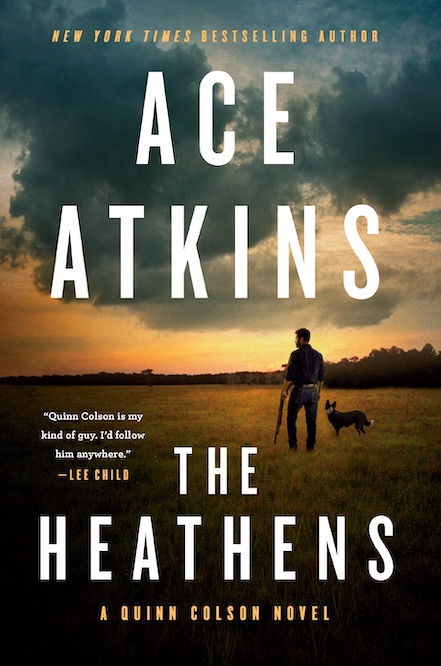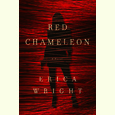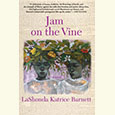Strange and Evil
De’Shawn Charles Winslow’s Decent People uncovers troubling secrets in small-town North Carolina
Murder mysteries conventionally focus on a single question: Who did it? The best of the genre — such as De’Shawn Charles Winslow’s new novel Decent People — raise more philosophical issues. What is the value of human life? What kind of world do we live in? Is justice possible? In the case of West Mills, North Carolina, the setting for Winslow’s story, the most pressing question is both practical and existential: Should I stay or should I go?
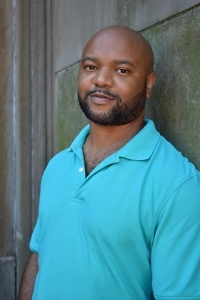
In the first chapter of Decent People, Josephine Wright, who left West Mills as a child, returns in 1976 after a long career in New York. Jo plans to marry her youthful sweetheart, Olympus “Lymp” Seymore, and settle in a cottage on the west side of a canal that divides the Black community from the all-white east. Her vision of serene, companionable days is scrambled when she learns that the Harmon siblings — Marian, Marva, and Lazarus, friends of Jo’s youth — have been shot to death in their home. The Harmons returned to West Mills a decade earlier, after many years in the North, to establish Friendly Pediatrics, with Marian as physician, Marva as nurse, and Laz as factotum. Worse, police have identified Lymp, the Harmons’ half-brother, as the prime suspect. It’s enough to make Jo question her decision to leave New York.
Not content to trust the investigation to the police, who are notoriously ineffectual in solving crimes against Black citizens, Jo begins to question witnesses and identify suspects. She wants to clear Lymp’s name — and to assure herself of his innocence — before she commits fully to him or the town. She suffered through two unsatisfying, childless marriages and wants simply to find some peace. West Mills may not be the pastoral idyll she craves.
Jo’s investigation reveals that clouds of suspicion hung over the Harmon siblings years before they were murdered. They accumulate enemies; rumors swirl regarding shady dealings at the medical practice and in their family home, the fanciest residence on the west side (a legacy from their father). Patients suspect Marian of insurance fraud, and the community questions why so many adults enter a pediatric clinic — might the Harmons be trading illicitly in drugs, as the police believe?
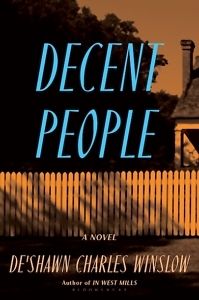 Marion’s receptionist, Angela Glasper, sums up the town’s judgment. “Dr. Harmon was rude. Had no bedside manner whatsoever … she thought herself better than the rest of us on the west side,” Angela says. “And Lord did she love money. More than loved it. She was greedy. Just as greedy as all get-out.” Distasteful, Jo thinks, but is that enough to motivate someone to kill her and her siblings?
Marion’s receptionist, Angela Glasper, sums up the town’s judgment. “Dr. Harmon was rude. Had no bedside manner whatsoever … she thought herself better than the rest of us on the west side,” Angela says. “And Lord did she love money. More than loved it. She was greedy. Just as greedy as all get-out.” Distasteful, Jo thinks, but is that enough to motivate someone to kill her and her siblings?
Laz, the youngest of the Harmons, presents another wrinkle that may complicate the crime. Several characters question his sexuality. Angela says flatly, “Didn’t seem to me that he was interested in women.” Given the prevalent homophobia in 1970s North Carolina, Jo knows that Laz could have been the target of violence. Her own brother, a gay man who settled with her in New York, doesn’t dare join Jo in her reverse migration south.
The risks of homosexuality emerge in the novel’s most harrowing sequence when, only weeks before the murders, a West Mills mother, Eunice Loving, takes her 14-year-old son to Dr. Harmon “to have the gay removed.” What ensues is conversion therapy at its most primitive, violence and shame employed to turn a “sissy” into a “man.”
Eunice, knowing that she has lost her son’s trust, turns her anger on Marian and her siblings. “People always said y’all was strange,” Eunice shouts at Marva and Laz. “But strange ain’t got nothing on her! She’s pure evil!” Eunice joins a growing list of characters with vendettas against the Harmons.
Though the story begins and ends with Jo, Winslow revolves the narrative among a half-dozen characters. This technique allows him to expand the world-building that started in In West Mills (2019), his debut novel. Jo is not the only one who escapes this small town only to be sucked back into its dense orbit.
Winslow, who was raised in Elizabeth City, North Carolina, and has lived in New York and Atlanta, offers an ambivalent portrait of this Southern town. Amid the civil rights movement and other cultural revolutions, West Mills remains segregated and hostile to interracial romance. As one character puts it, “Times have not changed. Not that much.”
Despite the darkness of the subject matter, Winslow has a light touch, moving readers briskly through the novel’s kaleidoscopic events. He spices the story with period detail, apposite references to McMillan & Wife and Patty Hearst that remind us we are visiting a lost world. Winslow’s novel partakes of melodrama — seedy crime and racial violence, family secrets and betrayals, romantic rivalries and hopeless loves — but resolves into an essentially domestic question: Where can we find a home?

Sean Kinch grew up in Austin and attended Stanford. He earned a Ph.D. from the University of Texas. He now teaches English at Montgomery Bell Academy in Nashville.
